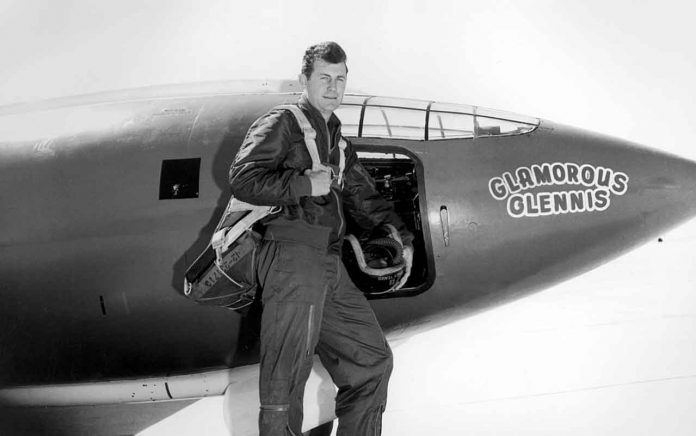Charles Elwood Yeager was a United States Air Force officer, flying ace, and record-setting test pilot. In 1947, he became the first pilot in history confirmed to have exceeded the speed of sound in level flight. Yeager’s career began in World War II as a private in the United States Army Air Forces in 1941.
Yeager lived in Northern California and died on December 7, 2020, at age 97, in a Los Angeles hospital.
#OTD 14 October 1947 Chuck Yeager @GenChuckYeager broke the sound barrier by flying faster than the speed of sound in a Bell X-1 rocket plane. pic.twitter.com/wtNwZ23J1L
— ExplorersClub (@ExplorersClub) October 14, 2020
The following is a statement from NASA Administrator Jim Bridenstine on the passing of Gen. Chuck Yeager:
“Today’s passing of Gen. Chuck Yeager is a tremendous loss to our nation. Gen. Yeager’s pioneering and innovative spirit advanced America’s abilities in the sky and set our nation’s dreams soaring into the jet age and the space age. He said, ‘You don’t concentrate on risks. You concentrate on results. No risk is too great to prevent the necessary job from getting done.’
“Among many firsts in more than 60 years in aviation, Chuck was the first man to fly at the speed of sound, and his achievements rival any of our greatest firsts in space. Not content to rest on his laurels, he went on to break his own record and travel at Mach 2.44. But even before that he was serving his country heroically in World War II. Long after he became a legend in his own time, he continued to serve his country through the military and later in his ongoing work to test new aircraft.
“Chuck’s bravery and accomplishments are a testament to the enduring strength that made him a true American original, and NASA’s Aeronautics work owes much to his brilliant contributions to aerospace science. As a young naval aviator, I was one of many around the world who looked up to Chuck Yeager and his amazing feats as a test pilot. His path blazed a trail for anyone who wanted to push the limits of human potential, and his achievements will guide us for generations to come.”


